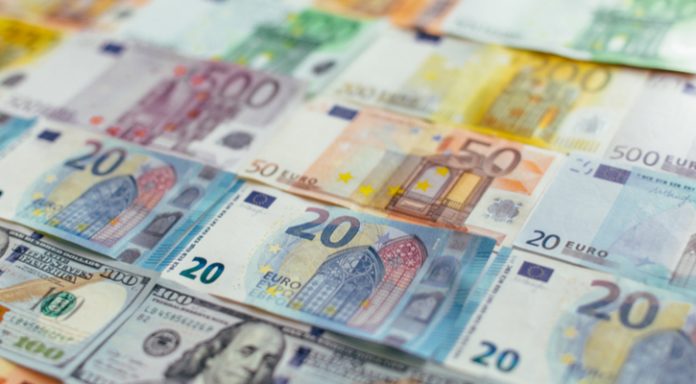The pound pushed almost 1% higher versus the euro again in Wednesday, reaching €1.1482, it’s best level in almost two months.
| What do these figures mean? |
|---|
|
When measuring the value of a pair of currencies, one set equals 1 unit and the other shows the current equivalent. As the market moves, the amount will vary from minute to minute. For example, it could be written: 1 GBP = 1.13990 EUR Here, £1 is equivalent to approximately €1.14. This specifically measures the pound’s worth against the euro. If the euro amount increases in this pairing, it’s positive for the pound. Or, if you were looking at it the other way around: 1 EUR = 0.87271 GBP In this example, €1 is equivalent to approximately £0.87. This measures the euro’s worth versus the British pound. If the sterling number gets larger, it’s good news for the euro. |
Encouraging labour market data boosted demand for the pound in the previous session. UK unemployment remained dipped to 4.3%, the closely watched wage growth figure jumped higher. Average wage growth for the three months to January increased 2.8%, higher than the 2.6% forecast by analysts and above December’s upwardly revised 2.7%.
With inflation in February measuring 2.7%, should the current pattern continue then this month consumers will no longer be experiencing a wage drop in real terms. This is good news for the economy as it means that consumers should start spending again on non-essential items, an area which has been hit hard by households reining in their spending.
| Why does strong economic data boost a country’s currency? |
|---|
| Solid economic indicators point to a strong economy. Strong economies have strong currencies because institutions look to invest in countries where growth prospects are high. These institutions require local currency to invest in the country, thus increasing demand and pushing up the money’s worth. So, when a country or region has good economic news, the value of the currency tends to rise. |
Investors will now look towards the Bank of England (BoE) interest rate decision at midday today. The central bank is expected to keep rates on hold. Investors will then watch BoE Governor Mark Carney in the pursuing press conference for any further clues as to the direction of monetary policy.
Investors will be looking for clarity from the central bank. Policy makers at the central bank had been hinting towards a Spring rate hike, Market participants will be keen to know whether the BoE is more inclined to raise interest rates now that earnings were overtaking inflation and given the stability that a Brexit transition deal should provide. Any clues from Mark Carney that a rate rise in on the cards in Spring could boost the pound.
| Why do raised interest rates boost a currency’s value? |
|---|
| Interest rates are key to understanding exchange rate movements. Those who have large sums of money to invest want the highest return on their investments. Higher interest rate environments tend to offer higher yields. So, if the interest rate or at least the interest rate expectation of a country is relatively higher compared to another, then it attracts more foreign capital investment. Large corporations and investors need local currency to invest. More local currency used then boosts the demand of that currency, pushing the value higher. |
Euro Traders Wait For Clues On Eurozone Economy
The was no influential economic data from the eurozone in the previous session leaving the euro to trade lower versus the stronger pound. However, after the slow start to the week for eurozone data, tomorrow more than makes up for it. Market participants will be following the manufacturing and service purchasing managers index releases carefully, to gauge the health of the eurozone economy.
Whilst the eurozone economy was particularly strong through 2017. There have been signs that it is losing momentum at the beginning of this year. Should today’s data continue to point at a slowing of the bloc’s economy then euro could fall further.
|
This article was initially published on TransferWise.com from the same author. The content at Currency Live is the sole opinion of the authors and in no way reflects the views of TransferWise Inc. |





